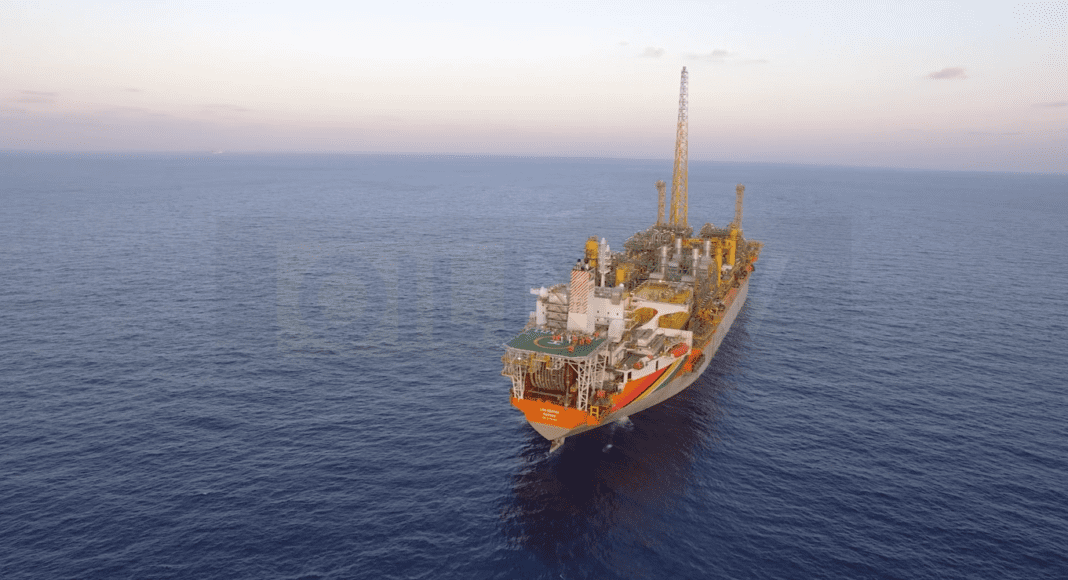The decision to flare the associated gas from the offshore oil production operations in Guyana was the most practical option available when challenges were encountered with the reinjection system on the Liza Destiny FPSO. The alternative could have been the release of up to 100 times more potent greenhouse gases into the atmosphere by venting, or stopping oil production altogether, which the Guyana government has said is not in keeping with its development goals.
Opposed to flaring, open to offshore development – Guyana looking to maximise benefits from oil
Director of the Payne Institute and a Professor of Public Policy at the Colorado School of Mines, Morgan D. Bazilian, on Friday, October 16 during an informational session with Guyanese reporters explained that the only other option available for disposing the gas, was venting.

“Gas flaring happens with associated gas….so, it’s a by-product of the oil business and if it’s not controlled in some way through either using the gas for effective things like power plants or for fertilisers or for other things…then what happens is that it can be vented into the air which means released into the air or it can be burned when it’s released into the air, and that’s flaring,” he said.
Mr. Bazilian went on to say that the main reason flaring is chosen over venting is that it releases carbon into the atmosphere which is much less damaging than raw methane.
According to the expert, “When you start an oilfield project or an oilfield, there’s often the need to flare initially because of safety concerns about pressure build-up in the system. It’s much preferred to vetting. You don’t want to have lots of methane just vented into the atmosphere, that’s quite a bit worse so the goal of this initiative is to move to zero routine flaring.”
Asked about the difference in impact between the ongoing flaring and the potential impact of venting, had that option been utilised, Mr. Bazilian said, “I can’t imagine a scenario where Exxon would have vented the gas…it would be very far from best practice so venting that amount of methane into the atmosphere would have on the order of 80 or 100 times more greenhouse gas impact than the CO2 that is being emitted by the flaring now.”
The U.S Energy Information Administration has also said that when possible, flaring is preferred because methane, the main component of natural gas, is a potent greenhouse gas, more potent than the carbon dioxide that is the main product of flaring.
In fact, Mr. Bazilian said venting is such a dangerous practice that it is banned in some parts of the United States. “In the States, if people are venting, it’s not reported, it’s illegal, highly illegal and very damaging to the environment…especially from a climate change perspective…So, you definitely do not want venting.”
The U.S Department of Energy in a report on flaring and venting last year said that all of the states where oil and natural gas are produced have regulatory frameworks in place to prevent waste of these natural resources during their production. “Flaring of natural gas is recognized as being necessary for the safe and efficient production, processing, and transportation of both oil and natural gas,” the report stated.
Mr. Bazilian emphasised that flaring, given the circumstances offshore, was necessary, saying, “There is no other alternative to starting up an oil field for safety reasons so it’s unfortunate that there was the technical mishap…and I guess coupled with the issues around the pandemic to fix it…so yes, there’s no real alternative for the safety of the field itself and the resource.”
He noted that the projects in Guyana are engineered to be at zero routine flaring over the course of their life, adding that Guyana does not show up in the top 30 countries for flaring and has not had a long-term flaring situation.
Stabroek Block flaring 17 times lower than global average
Government officials in Guyana have said, notwithstanding environmental and other concerns, the revenues expected from development of the vast offshore hydrocarbon resources form a key aspect of the country’s development plan.
“There are many people saying now that we should not be producing oil. We don’t have that option in Guyana. Our people badly need development and we have to make sure that we produce the oil and get as much development out of it for our people to invest long term in other sectors so that they can get wealthier and have a decent life,” Vice President, Bharrat Jagdeo said.



